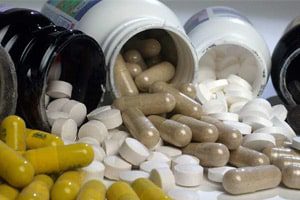
An increased use of dietary supplements may be associated with mounting reports of liver damage, a recent report claims. In a case highlighted by The New York Times, a teenage boy was hospitalized with jaundice that his physician described as being similar in color to that of a yellow highlighter. The boy was diagnosed with […]
 An increased use of dietary supplements may be associated with mounting reports of liver damage, a recent report claims.
An increased use of dietary supplements may be associated with mounting reports of liver damage, a recent report claims.
In a case highlighted by The New York Times, a teenage boy was hospitalized with jaundice that his physician described as being similar in color to that of a yellow highlighter. The boy was diagnosed with severe liver damage following his use of concentrated green tea extract that he said he bought for its so-called “fat burning” properties. As of the most current report on his progress, he was placed on a liver transplant list.
Research the Times cited revealed that dietary supplements are the culprit in about 20 percent of all drug-related liver injuries that are reported by hospitals, which represents a 7 percent increase in the past decade. The research involved a review by a national network of liver specialists and only considered the most severe liver damage cases nationwide. According to the investigators the actual numbers are likely much higher.
Dr. Herbert L. Bonkovsky, director of the liver, digestive, and metabolic disorders laboratory at Carolinas HealthCare System in Charlotte, North Carolina, told the Times that, regarding the many supplements out there, “It’s really the Wild West…. When people buy these dietary supplements, it’s anybody’s guess as to what they’re getting.”
Americans spend some $32 billion each year on dietary supplements. Nearly half of all Americans take dietary supplements and most take more than one supplement at a time, according to the Times. Although most of the liver injuries that are tracked by a network of medical officials are blamed on prescription medications, it is the lack of regulation in the supplement industry that is of most concern. Critics have sought for increased oversight that would mandate supplement makers prove their products are safe and genuine, and also manufactured in accordance with strict manufacturing standards before release to the market, according to the Times.
The Dietary Supplement Health and Education Act of 1994 prohibits the U.S. Food and Drug Administration (FDA) from approving or evaluating most dietary supplements prior to release, according to the Times. The FDA is generally only able to act following consumer harm. Also, because industry works on a type of honor system, the number of adulterated and incorrectly labeled and packaged products whose safety was not studied is rising.
Emerging research reveals that numerous supplements involved with liver injuries are body building supplements containing unlisted steroids, as well as herbal pills and powders that boast increased energy and weight loss promises, the Times indicated.
USPlabs LLC recently recalled its OxyElite Pro Dietary Supplements over possible liver injury risks. The recall notice indicated that the products contain aegeline, a synthesized version of a natural extract from the Bael tree. According to the agency, epidemiological evidence revealed that use of the products has been tied to dangerous adverse health consequences, including serious liver damage or acute liver failure.
According to the FDA, 70 percent of dietary supplement companies do not follow basic quality control standards that would help prevent product adulteration. About 55,000 supplements are sold in the United States, according to the Times. Of these, only 170—0.3 percent—have undergone studies that sufficiently reveal common side effects, said Dr. Paul A. Offit, chief of infectious diseases at the Children’s Hospital of Philadelphia and a dietary supplement expert. He told the Times, “When a product is regulated, you know the benefits and the risks and you can make an informed decision about whether or not to take it…. With supplements, you don’t have efficacy data and you don’t have safety data, so it’s just a black box.”


